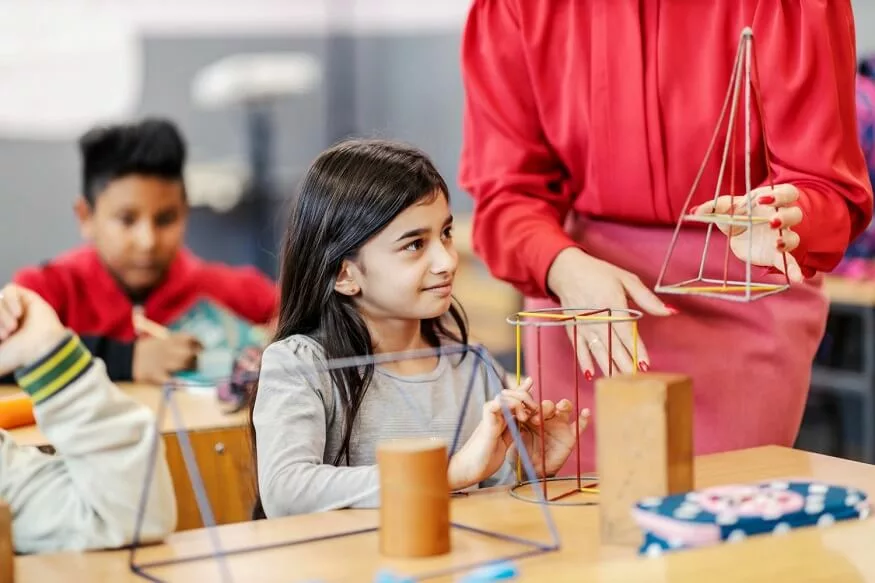The Central Board of Secondary Schools in India is critical in creating the school system and supporting student’s complete development. In recent years, there has been an increasing acknowledgment of the importance of skill development as well as of traditional academics. To satisfy this demand, CBSE has launched several projects targeted at improving secondary student’s skill sets. In this complete blog, we will explore the benefits of CBSE skills development efforts, offering a complete description of each project, its objectives, and its influence on students.
Benefits of CBSE Initiatives for Skill Development among Secondary Students:
1. Skill-Based Subjects and Vocational Courses
CBSE has introduced a wide range of skill-based subjects and vocational courses at the secondary level. These courses are designed to equip students with practical skills and knowledge that can lead to gainful employment or entrepreneurial opportunities. The key features of these initiatives include:
Subjects Like Entrepreneurship, Information Technology, and Multimedia and Web Technology: These subjects are offered at the secondary level and provide students with essential skills related to business, technology, and digital media.
Vocational Courses: CBSE offers vocational courses in sectors such as healthcare, hospitality, automotive, and more. These courses are developed in partnership with industry professionals to guarantee that students are hired upon graduation.
Practical Training: Internships or practical training are frequently included in vocational courses, providing students with hands-on experience in the field of their choice.
Skill Assessment: CBSE conducts skill assessments and certifications for students who complete vocational courses, enhancing their employability.
These initiatives not only broaden students’ horizons but also make them more industry-relevant and self-reliant.
2. Skill Development Clubs and Activities
CBSE encourages the formation of skill development clubs and activities in schools to foster a culture of practical learning. These clubs and activities provide students with opportunities to explore their interests and develop essential skills.
Robotics Clubs: Many CBSE schools have developed robotics clubs where students may learn about programming, engineering, and robotics via hands-on projects.
Debate & Public Speaking groups: These groups assist students in enhancing their communication and critical thinking abilities, which are essential for success in a variety of disciplines.
Art and Craft Clubs: Encouraging creativity and artistic skills among students.
Sports and Fitness Clubs: Promoting physical fitness and teamwork through sports and games.
Community Service Clubs: Encouraging social responsibility and leadership through community service activities.
These clubs and activities are not only enjoyable for students but also contribute significantly to their overall development.
3. CBSE Skill Education Framework
CBSE has developed a comprehensive Skill Education Framework that serves as a roadmap for integrating skill development into the mainstream curriculum. The framework focuses on the following aspects:
Curriculum Integration: Skill-based learning is integrated into the regular curriculum, ensuring that students acquire practical skills alongside theoretical knowledge.
Teacher Training: CBSE conducts training programs for teachers to equip them with the skills and knowledge required to teach skill-based subjects effectively.
Assessment and Certification: Students are assessed on their practical skills, and certifications are provided to acknowledge their proficiency.
Industry Collaboration: CBSE collaborates with industry partners to develop and update skill-based courses, ensuring that they remain relevant to current industry needs.
The Skill Education Framework serves as a blueprint for CBSE schools to implement skill development among secondary students effectively.
4. Skill Development through Information Technology
CBSE recognizes the significance of information technology (IT) skills in the modern world. To equip students with digital literacy and IT skills, CBSE has initiated several programs:
Digital Learning Resources: CBSE provides digital learning resources, including e-books, multimedia content, and online tutorials, to enhance IT skills.
Coding and Programming: CBSE encourages coding and programming abilities through a variety of projects, such as the Hour of Code program, which exposes students to coding in a fun and participatory way.
ICT Curriculum: CBSE has integrated Information and Communication Technology (ICT) into the curriculum to ensure that students are skilled in using digital tools and applications.
These IT-related initiatives not only prepare students for the digital age but also open up various career opportunities in the technology sector.
5. Collaborations and Partnerships
CBSE actively collaborates with government bodies, industry associations, and non-profit organizations to expand its skill development initiatives. These partnerships help in the following ways:
Industry-Relevant Curriculum: Industry experts and organisations contribute to curriculum creation, ensuring that it is relevant to current job market demands.
Internships and Workshops: Collaborative efforts frequently result in chances for students to take part in internships, workshops, and seminars led by industry professionals.
Skill Certification: CBSE partners with certifying agencies to provide recognized skill certifications to students, enhancing their employability.
Financial Support: Some partnerships may involve financial support or scholarships for deserving students pursuing skill-based courses.
These collaborations not only enhance the quality of skill development programs but also broaden students’ exposure to real-world scenarios.
6. Student Assessment and Feedback Mechanisms
To ensure the effectiveness of skill development in CBSE initiatives, CBSE has implemented robust assessment and feedback mechanisms:
Continuous Assessment: Skill-based subjects are assessed continuously to gauge students’ progress and identify areas for improvement.
Feedback Loops: Students are encouraged to provide feedback on their learning experiences, helping CBSE make necessary improvements.
Performance Monitoring: CBSE monitors the performance of students in skill-based subjects and uses the data to refine its initiatives.
Parent Involvement: Parents are kept informed about their child’s skill development progress, fostering a collaborative approach to education.
These mechanisms help CBSE tailor its programs to meet the evolving needs and expectations of students and parents.
Also read : Remedial Teaching: Why You Need to Know About It
7. Encouragement of Enterprise and the Start-up Culture
CBSE understands the need to develop an entrepreneurial attitude among students. CBSE has launched the following efforts to promote entrepreneurship and start-up culture:
Entrepreneurship Courses: The CBSE provides entrepreneurship courses to students that teach them about company planning, creativity, and taking chances.
Start-up Incubation Programs: Collaborations with entrepreneurs and start-up programs give students the opportunity to incubate their company ideas.
Competitions & Challenges: To inspire students to find creative solutions to real-world issues, CBSE offers entrepreneurship-related competitions and challenges.
Mentorship: Students get to communicate with experienced entrepreneurs and advisors who can help them succeed in their business.
These programs enable students to explore their business dreams while contributing to the nation’s economic growth.
Also read : The Importance of vocational training for career development
Impact and Future Directions:
CBSE’s skill development initiatives have had a positive impact on secondary students. They have enhanced not only unemployment but also creativity, critical thinking, and practical ability to solve problems. Students who get skill-based instruction are more equipped for present day difficulties, whether they continue further education or enter the industry directly.
- In the future, CBSE aims to expand and refine its skill development programs further.
- Introducing new skill-based subjects and courses to keep pace with emerging industries and technologies.
- Strengthening partnerships with industry and academia to bridge the gap between education and employment.
- Providing more resources and training for teachers to effectively impart skill-based education.
- Continuing to adapt to changing educational paradigms to ensure that CBSE remains at the forefront of skill development initiatives.
Also read : The Role of Education in addressing social and economic inequalities
Conclusion:
At EuroSchool, we recognize the importance of CBSE initiatives for skill development among secondary students. By integrating practical skills, fostering innovation, and promoting entrepreneurship, CBSE is preparing students to excel in a competitive global environment. The Benefits of CBSE initiatives are evident in the increased employability and well-rounded development of CBSE-affiliated students.










